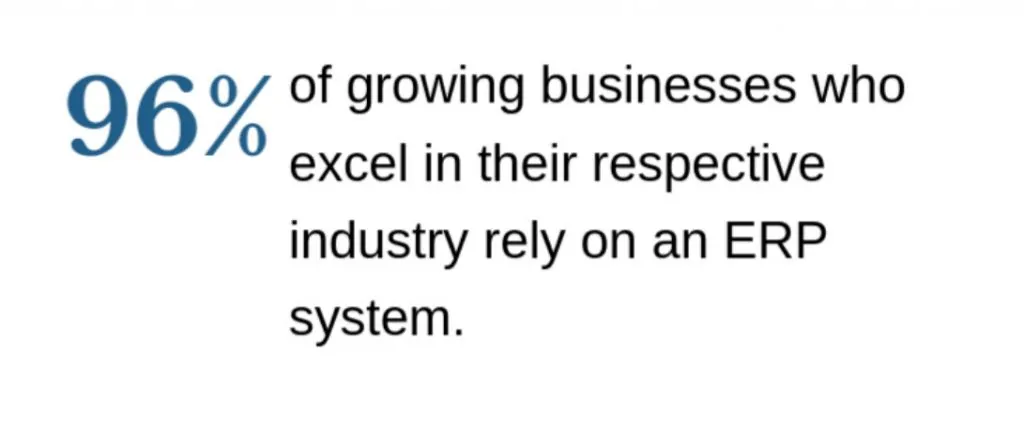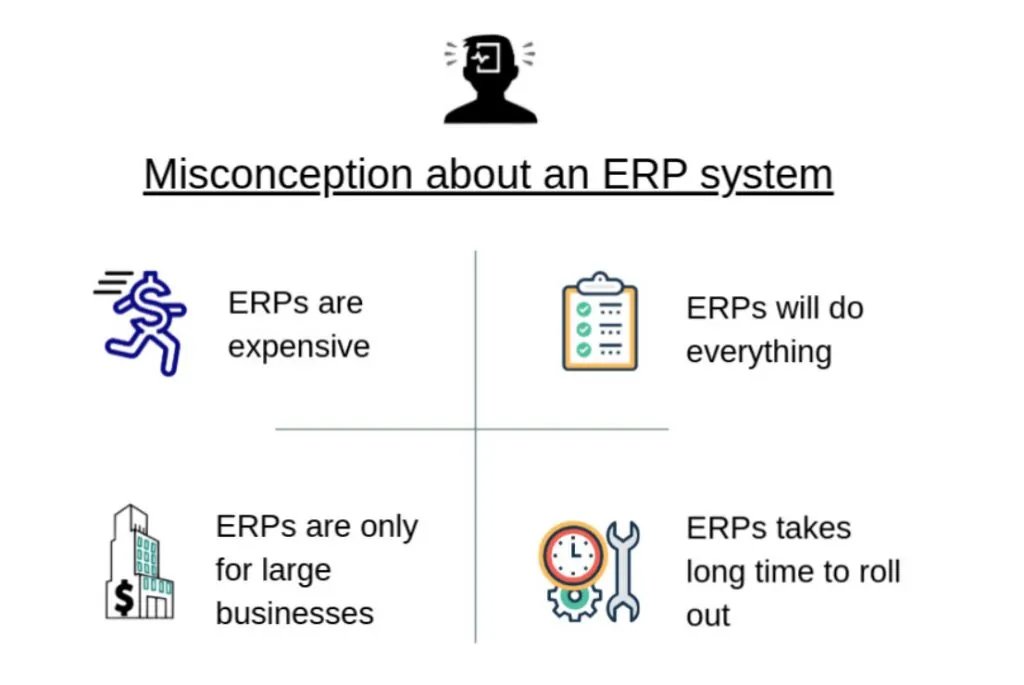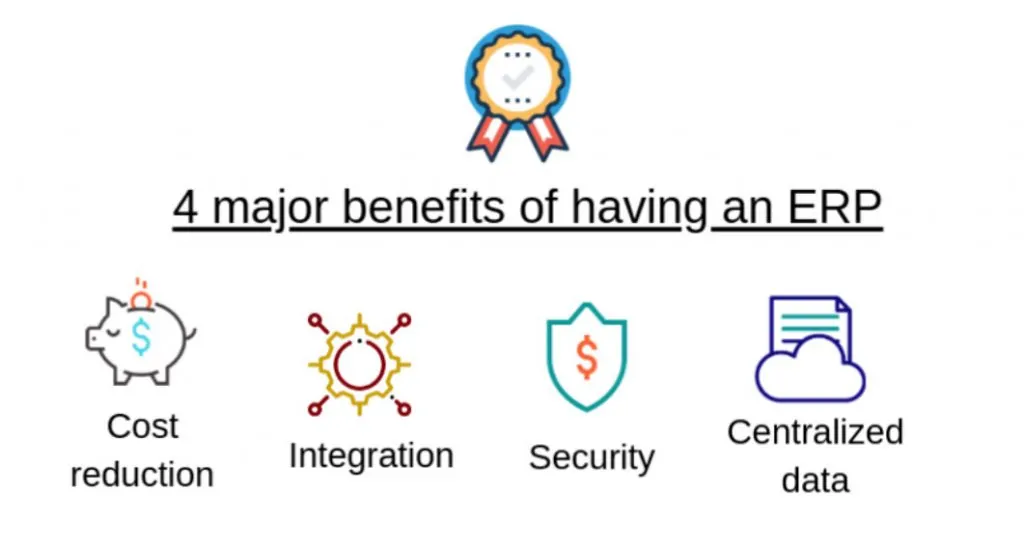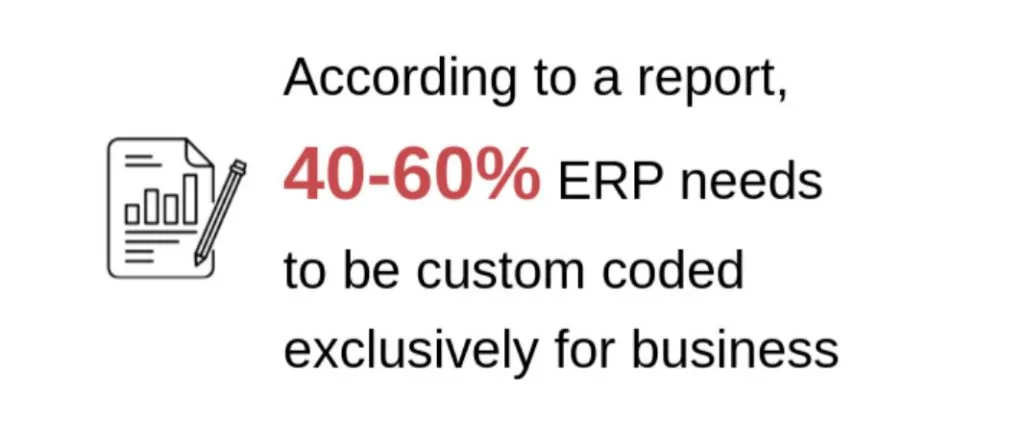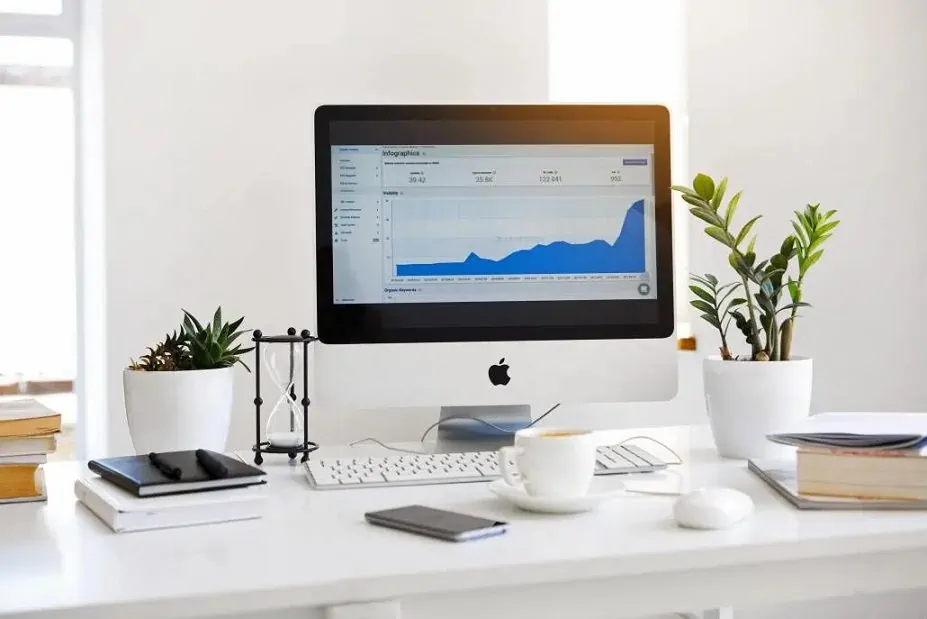Enterprise resource planning system for small businesses means doing more with less and fueling rapid growth. Before we proceed on all the lengthy discussions on ERP for small business, let’s validate my first sentence with some statistics:
[1] A reduction of 36% was seen in time to make decisions when the small businesses opted for ERP software.
[2] After marketing technology and business management, ERP is the most popular software for small scale businesses.
[3] Small business owners believe that using ERP can reduce the cost of operation by 11%. It also provides them visibility to data in real-time by 48%.
Just because ERP has ‘Enterprise’ in it, doesn’t mean that ERPs are limited to big scale industries. But, with time, small and medium businesses have also started adopting ERPs on a larger scale.
According to Allied Market Research, from 2014 to 2020, SMEs are projected to contribute a CAGR of 7.9% to the ERP market share due to the incentives that these solutions have to offer, including reduced inventory waste and lower operating costs.
Yet, some businesses are reluctant to develop an ERP because they think it’s expensive and complicated. That’s not quite true!
SaaS-based custom-developed Enterprise resource planning software are designed in such a way that they are scalable and fits all the requirements within a pocket pinch that most can afford. These software are also easy to navigate and adapt. In this article, we’ll introduce you to the benefits of ERP software for small businesses and whether an SMB should go ahead with an OTS (Off the Shelf) ERP or should opt for custom ERP instead.
Let’s start with the basics: What exactly is an ERP system?
I’m sure everyone knows this but just for a quick reminder, an ERP is a unified software system with different core components to manage external as well as internal business processes across the entire organization. Say, you run a hotel business – all the business activities like production, management, sales, accounts, inventory, HRM can be integrated into one system and managed by all.
ERPs further enable an organization to collect, manage and access all the data at a centralized system, making it more compact, optimized and organized.
Why small businesses need ERP?
ERP for a long time has been regarded as messiah for enterprises, but small businesses can equally enjoy the benefits of an enterprise software. When you are just starting out with a few customers and a few business processes, handling all of them over excel might seem easy at first. But, small business owners and employees wear many hats.
Juggling huge amount of data every day and processing multiple excel sheets will not only be time-consuming but it will be prone to human errors – errors that may cost you a lot in the future. Adding to it, this everyday manual work will consume time. Also not to say, it will affect the productivity and efficiency of your business.
Small scale industries generally don’t want to invest in ERP believing it’s not required for their business growth and will cost millions of dollars. But, we are here to change that notion. Here are a few reasons why one should think of having an ERP for their business:
[1] Process Efficiency and Increased Productivity
Because, ERP comprises of various modules that interlink data from all departments, it helps automate repetitive and tedious processes. It also acts as a central hub for all sorts of information and syncs them in real time. This streamlines business processes and helps with time saving. Time is money, doesn’t matter what the size of the company is.
Also, if your ERP is a cloud based ERP, automatic data back-up, periodic upgradations and security patches and zero maintenance of the servers at the company’s end, saves ample time. This helps employees focus on other time sensitive and pressing projects and tasks that require their immediate attention, helping improve productivity.
Also, an ERP means data-based decisions. Because now you have a constant availability of real-time data, executive decisions can be more fact based and also much quicker.
[2] Reduction in Cost
ERP software means accuracy, automation, and collaboration that together reduces operational and administrative costs without cutting corners. This allows executives to make quick and informed decisions. Also, collaboration amongst all departments are made easy by centralizing and linking data sources for all departments instead of everyone maintaining their own little secret kingdom.
Also, ERP allows everything to be handled and the issues to be solved in real-time (inventory, PO etc). This small cost saving adds on to more cash flow and hence making the small businesses to earn more profits.
Say for example you got an offer from one of your vendors that if the bill will be paid within 30 days, you will be eligible to avail a discount of 5% in the total amount. ERP will remind you to pay the bill within time, saving a small part of your budget.
[3] Data Security
These ERPs have advanced permission protocols that will allow the data to be accessed by an authorized person. ERP restricts access to data on the basis of job roles. This allows the data to be handled by the ones provided with the access and not to everyone ensuring that the data is in safe hands.
You can host your ERP either in Cloud or On-premise. Cloud based ERPs will be the one that will be hosted on your vendor’s server and one can access it through the web browser. While on-premise are the ones that have been installed locally on the company’s server and computers and your IT team will manage everything on their own. Cloud hosting can be more secure if your business doesn’t have a large, highly skilled IT team that are unable to manage on-premise ERP.
[4] Manage customer Relationship
Customer Relationship Management is an important part of ERP that manages the interactions with your existing as well as potential customers. CRM aims to improve customer relationship and the growth of the business.
CRM will allow you to:
[1] Manage customer interaction
[2] Customer support
[3] Manages sales
[4] Solves customer’s issues faster
[5] Allows one to focus on what the customer wants
[6] Increasing the profit for your business
Source: Nucleus Research
Whether you need a stand-alone ERP or CRM or an integrated version of both, depends on the requirements and needs you have.
If you own a small scale business and you are satisfied with the software you are using to manage your internal processes, but you want to improve the sales then you probably need a CRM. If you are willing to increase the effectiveness and efficiency of the internal processes of your business, then you should go for an ERP.
On the other hand, if you want to maintain one single database and combine both internal process and customer data in one system, you should go for integrated ERP and CRM.
Now that we have an idea of what ERP is and what benefits they hold, let’s discuss about the signs that will help you understand when your business need an ERP software.
The top six signs that your business needs ERP software:
[1] It’s getting difficult to manage all the business data
[2] Collaboration among all the departments is becoming a difficult task
[3] It takes forever to retrieve information
[4] Accounting is time-consuming and complicated and reporting is tedious
[5] Lack of centralized process
[6] Unsatisfied customers
If you see some of the above symptoms in your business, it’s time you think about adopting an ERP soon.
Off-the-shelf(OTS) vs Custom ERPs for small businesses
ERPs are readily available in the market and you can actually start playing around with it with a single mouse click. Yet, according to a latest report, almost 7 in every 10 OTS ERPs need some or the other kind of customization in the long run.
This is mostly because, big ERP providers seem to focus on large-scale companies while developing an ERP. That means a lot of unnecessary ERP features that smaller businesses don’t need, but are required to pay for them.
So, at some point of time these small businesses realize that they can’t operate with an out-of-the-box ERP and require some further tailoring to meet their business-specific needs.
Now, you might ask, when customization is an option, why not opt for it? Well, customizing these generic ERPs beyond a threshold limit is a difficult task and it also means a lot of money. This is because the ERP customization company that you hire will need to go through the entire code base of a different company and then customize on top of that and moreover there are quite a few legal roadblocks there.
Source : Softrax
A custom made ERP means having an ERP that is tailored for your business’ specific needs. With a custom ERP, you are bound to have a competitive edge as the system is unique and no other organization can use that same software to render your specialized service a commodity. This will also help your employees to work evenly and adapt the ERP software real quick.
Developing a custom ERP also results in significant cost savings. A tailor-made ERP will allow you to update and make regular changes in the ERP. Initially, you can begin with your most important and frequently used modules and later keep on adding other modules, as and when those become your important and frequent business activities. It’s as good as “Pay As You Go” model.
So, if you are a business that has all the standard processes and no uniqueness in your business and you are comfortable with paying for features that you will never use, OTS is your way to go. But, if your processes are somewhat unique which give you competitive advantages and you are growing fast, custom ERP will be your best bet and will give you much better ROI.
Pro tip:
If you want to reduce the cost of custom ERP development, you can outsource your ERP development task to some third party vendor. This way, if you are a resident of the USA and outsource ERP development to India, you might save 60% of your costs without compromising on quality.
Parting words:
The numbers don’t lie. ERP indeed is an indispensable tool for small and mid-sized businesses. ERP comes with plenty of advantages that will help ease your business process flow and lowering operational costs. Furthermore, the major factor for a successful business is remaining innovative. Choosing an OTS ERP or hiring software developers to develop a custom ERP to maintain as well as further develop your competitive edge is a strategy that is working out for many businesses, and shouldn’t be an exception for your business too.
I hope after reading this article, you are more vigilant about the benefits, an enterprise resource planning software can bring to your business and why Small business ERP is not just a lifesaver but also acts as a great catalyst for your business growth.


